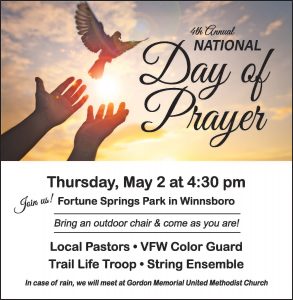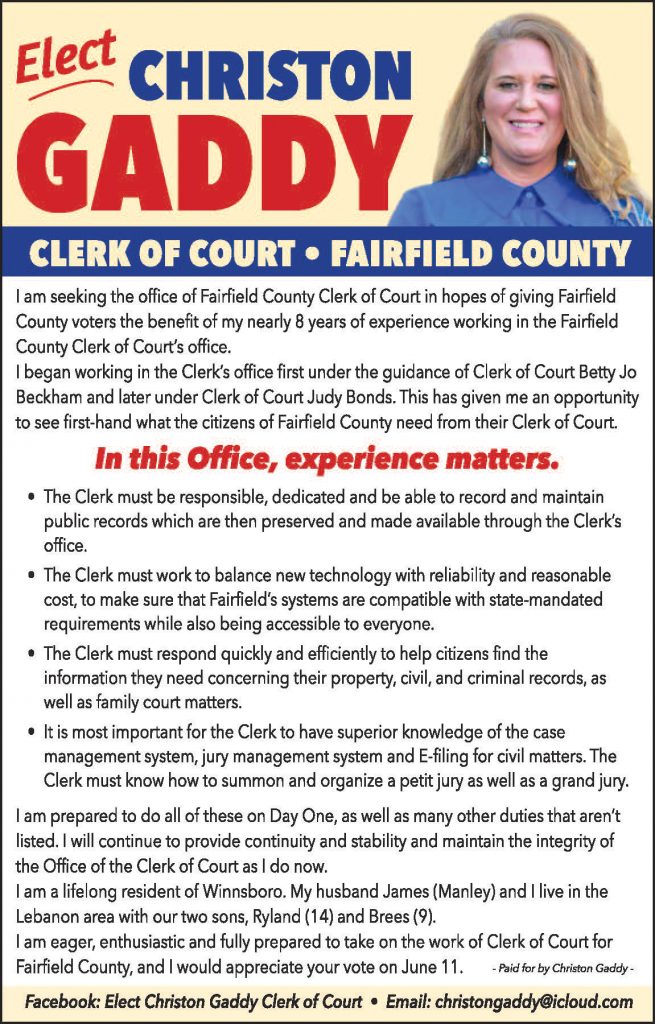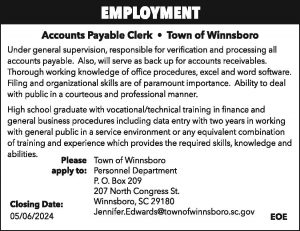Appeal of Dist. 3 Councilman Denied
NEW ELECTION PENDING
COLUMBIA – In a 4-1 decision Monday afternoon, the State Election Commission denied an appeal by District 3 County Councilman Mikel Trapp, upholding the Nov. 17 ruling by the Fairfield County Election Commission that ordered a new election in District 3 between Trapp and challenger Walter Larry Stewart.
“It’s almost a new day in Fairfield County,” Stewart said after Monday’s ruling. “It’s time for the people to speak. We went through the process of law and that was step two. Step three is to have another election, and we’ll go from there.”
Trapp and his attorney, John C. Moylan III, have 10 days from the time a written order is produced by the State Commission in which to file an appeal, which would go directly to the S.C. Supreme Court. Debra Matthews, the Winnsboro attorney who represented Stewart in his protest and at Monday’s appeal hearings, said she was prepared for the possibility of an appeal to the High Court.
“We’re pretty confident,” Matthews said. “We’re prepared, because we’ve already done all the research and have all the Supreme Court cases to support the evidence, so we’re good to go.”
Trapp’s appeal hinged on his attorney’s ability to introduce as evidence sworn affidavits from a pair of voters in the Monticello precinct. Those voters were two of the five voters, Matthews successfully argued in Stewart’s Nov. 17 protest hearing, who had been given incorrect ballot styles in the Nov. 4 election, which Trapp won by only four votes. The affidavits, however, testified that both voters would have voted for Trapp, had they been given the correct ballot style on Nov. 4.
Kadena Woodard, who sat in for Trapp at the Nov. 17 hearing, tried to introduce similar documentation. Matthews objected, however, as the documents were not notarized. The County Commission agreed, accepting them only as “offers of proof,” to be judged by the State Commission.
Monday, Moylan urged the State Commission to hear the appeal “de novo,” or anew, considering the now sworn and notarized affidavits.
“It is beyond ironic that someone could use supporters of Mr. Trapp to overturn Mr. Trapp’s election,” Moylan argued. “That cannot stand. To turn a blind eye to direct evidence, we would submit, is not the appropriate thing to do.”
But Liz Crumb, an attorney from the McNair Law Firm representing the County Commission, argued otherwise.
“The rules of evidence of the Circuit Court must be followed as nearly as practicable (in election protest hearings),” Crumb told the State Commission. “You have a very thorough record before you, and the only reason the Board can determine to have a de novo hearing is when there is not a full and complete record and you determine that more evidence is needed.
“To allow affidavits after the fact,” Crumb said, “is not a proper proceeding.”
The best evidence of how a voter intended to vote, Crumb said, is, according to numerous court cases, the ballot.
“The problem is, in this case, they weren’t given the proper ballot styles,” Crumb said, “so you do not have a ballot. In this case, we believe it is improper to allow evidence after the fact when Mr. Trapp could have attended the (Nov. 17) hearing, did not ask that the hearing be delayed and provided documents that weren’t even notarized.”
Moylan reminded the State Commission that it only took two members of the Commission to move to a de novo hearing. Billy Way Jr., Chairman of the State Commission, opened the floor for such a motion to his fellow commissioners, but the Board was silent.
After returning from executive session and prior to calling for a vote on the matter, Way said that the Commission had not considered the new affidavits in their deliberation.
Trapp declined to comment after Monday’s ruling.












